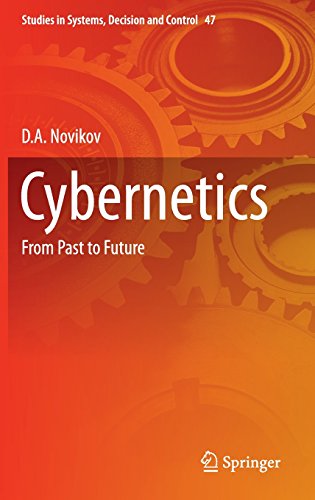

Most ebook files are in PDF format, so you can easily read them using various software such as Foxit Reader or directly on the Google Chrome browser.
Some ebook files are released by publishers in other formats such as .awz, .mobi, .epub, .fb2, etc. You may need to install specific software to read these formats on mobile/PC, such as Calibre.
Please read the tutorial at this link: https://ebookbell.com/faq
We offer FREE conversion to the popular formats you request; however, this may take some time. Therefore, right after payment, please email us, and we will try to provide the service as quickly as possible.
For some exceptional file formats or broken links (if any), please refrain from opening any disputes. Instead, email us first, and we will try to assist within a maximum of 6 hours.
EbookBell Team

4.7
46 reviewsThis book is a concise navigator across the history of cybernetics, its state-of-the-art and prospects. The evolution of cybernetics (from N. Wiener to the present day) and the reasons of its ups and downs are presented. The correlation of cybernetics with the philosophy and methodology of control, as well as with system theory and systems analysis is clearly demonstrated.
The book presents a detailed analysis focusing on the modern trends of research in cybernetics. A new development stage of cybernetics (the so-called cybernetics 2.0) is discussed as a science on general regularities of systems organization and control. The author substantiates the topicality of elaborating a new branch of cybernetics, i.e. organization theory which studies an organization as a property, process and system.
The book is intended for theoreticians and practitioners, as well as for students, postgraduates and doctoral candidates. In the first place, the target audience includes tutors and lecturers preparing courses on cybernetics, control theory and systems science.